Dark Souls
A knight to dismember.
Things like giant boulders that sweep suddenly down a narrow channel before pancaking you into the ground. Things like lizard-headed baddies who lurk just out of eye-line in almost every room. Things like pressure plates that will fire precise little rows of arrows into you as you pass through a door – even the first door you might walk through. Welcome home!
These kinds of dangers aren't that different from anything a Tomb Raider adventure might throw your way. But Dark Souls' commitment to conveying the weight of your armour and your weapons robs you of the agility that games normally give you in order to tip the scales back in your favour. You're so very human in this game's dungeons, and the designers don't sympathise with that state of affairs at all.
Instead, they start to combine things. They combine those pressure plate doorways with those hidden lizard baddies. They combine narrow bridges and giant chasms with swinging pendulums, before throwing in some more pendulums around the corner and making the narrow bridges narrower still. They force you to guard your front and then your back, and then they hit you from the side.
Treasure chests contain Rubber Johnny arms, tongues and teeth (Google it). Elevators - who doesn't trust elevators? - loft you into jaunty little rows of spikes if you don't notice the tell-tale blood splattered on them first. Whole buildings riddled with rolling boulders, pick-ups that only want to lure you over steep drops: it's the Mario game we might get if Miyamoto ever goes through a reaaally bad break-up.
But if the price of Dark Souls is eternal vigilance, the reward is a game that feels like no other: a circus of nasty precision and of gleeful cruelty. And, to tell the truth, you're hardly powerless in it.
Once again, you can lean on the ingenious and asynchronous network play to invite people into your game to help you, or read their tips and then leave your own. Or you can knuckle down and learn the game, not just by memorising levels as you inch your way from one death to the next, but by coming to understand the ways that Dark Souls like to play its tricks, so that you can predict the way it works a little better.
Finally, it's worth remembering that while you face many enemies and many traps, you can at least use some of the traps on some of the enemies.
Towards the end of the demo, we get to see a little of the game's improved sense of scale. Emerging onto the roof of the dungeon, we're suddenly lost under a huge sky, surrounded by mountains, rivers, forests, and the vast spiralling walls and parapets of a truly monstrous citadel. It's a world in which, as ever, we're told we'll be able to explore to our leisure.
For a minute, Dark Souls seems to be giving into an uncharacteristic moment of quiet grandeur. It doesn't last. Within seconds a giant man on a distant walkway has noticed us and starts chucking rocks our way.
Rocks that explode.
Forget the spiritual sequel stuff, then. Dark Souls is Demon Souls in every way that matters: in the intimidated stance of your character, in the wonderful triangulation of sword, shield and magic, and in that strange internal glow that travels with you, staining nearby walls gold.
It's Demon Souls Plus - bigger, more elaborate, and meaner. And it'll be here in time for Halloween.


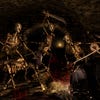



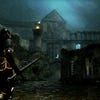

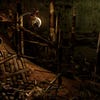

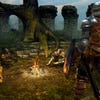

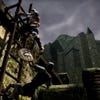
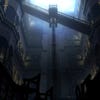




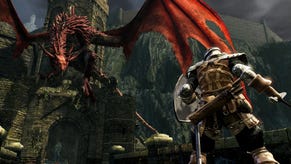
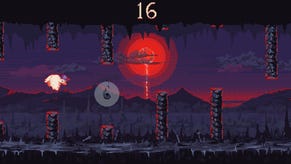
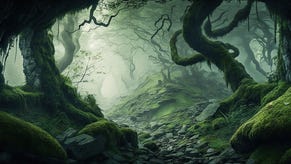
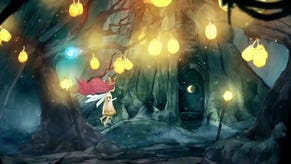
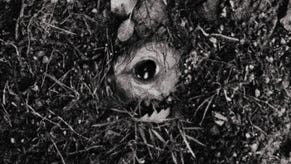




.png?width=291&height=164&fit=crop&quality=80&format=jpg&auto=webp)



